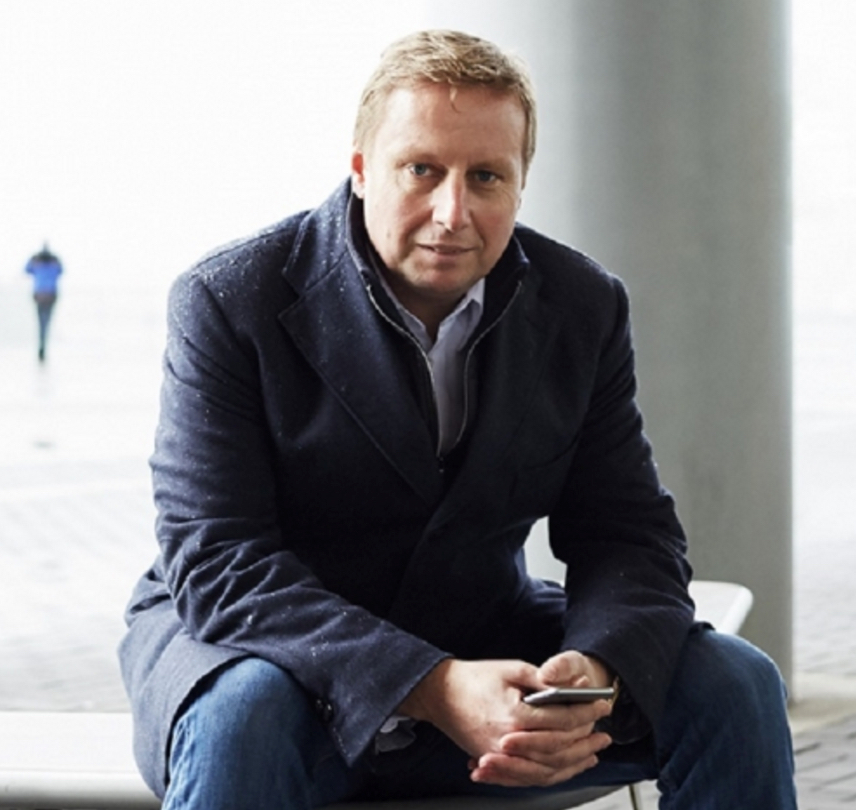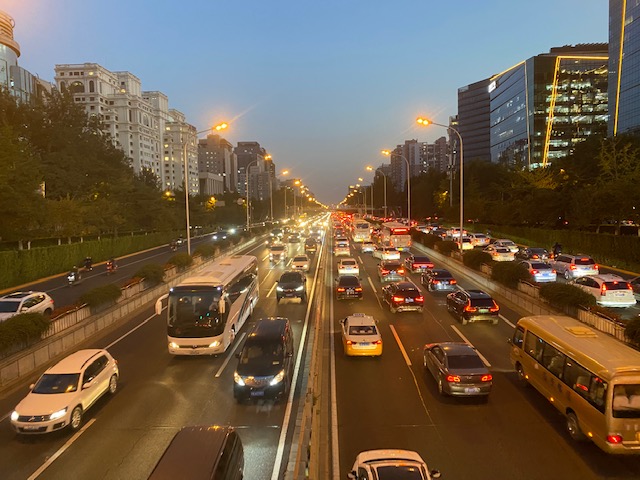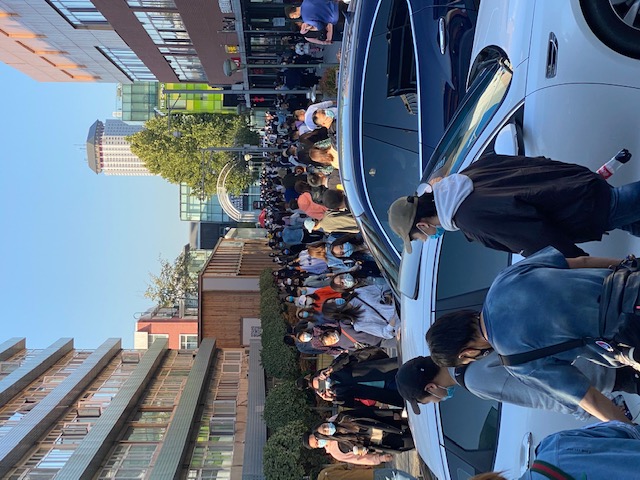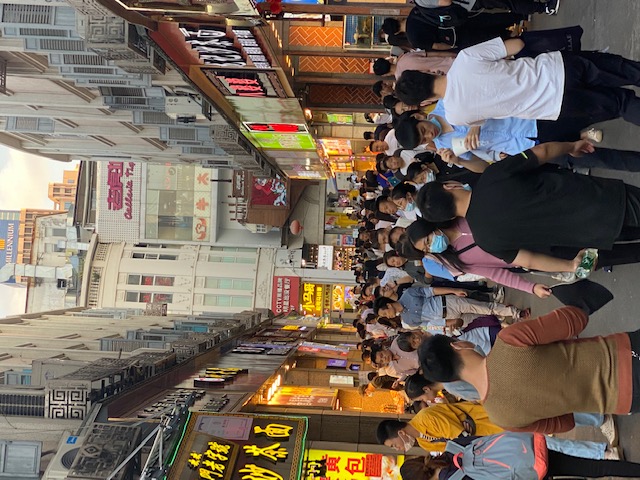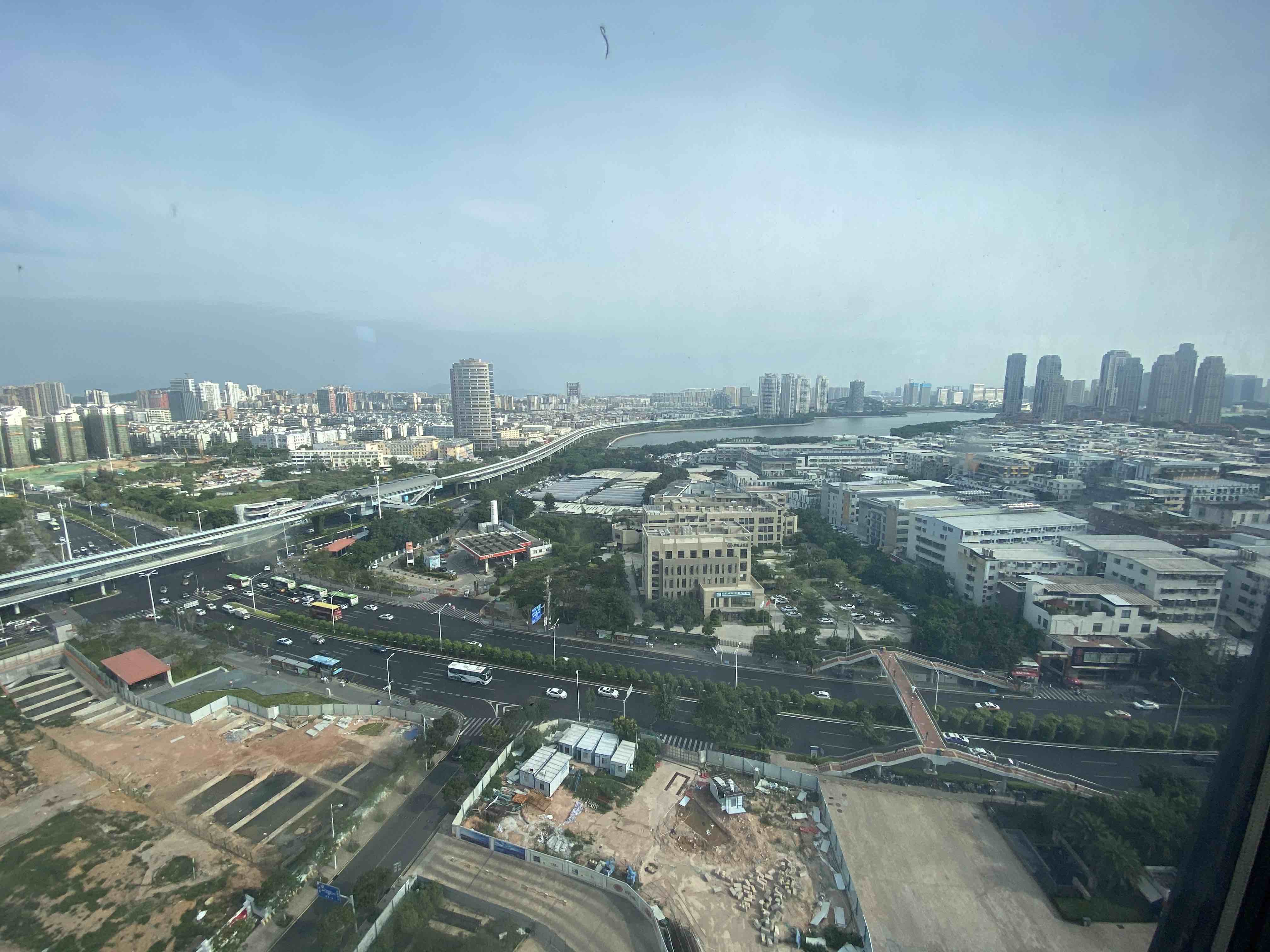
I am sitting behind my laptop in a hotel room in Xiamen (southern China) looking out over a construction site and the suburbs of this city of almost 4 million people. The room is not bad, but I have been locked up in here for the past 2 weeks, so I am starting to look forward to leaving it. I am not allowed to even open my door and walk into the corridor, and I have not seen any other people except twice a day doctors in full hazmat personal protection equipment. It is a bit surreal but it’s my own decision to be here and I don’t regret it.
China is one of the very few countries in the world that have COVID-19 completely under control. There have been no new domestic cases since mid-August, the only cases are from people traveling to China. China has achieved that with very strict lock downs early on in the pandemic, followed by quick and widely available testing combined with contact tracing for every person who was infected. That is great when you live here, but the downside is that if you travel to China you have to undergo extensive quarantine measures just to enter the country.
I was aware of that when I decided to travel here, but until I experienced it myself I did not realize how strict the rules were. You first need to apply for a visa to China. Chinese passport holders can travel without restrictions, but anybody else needs to get a newly issued visa. Even my current Chinese residence permit was not valid to travel anymore. Then you need to book a flight, which is not easy because instead of many flights per day there are now only a few flights per week between Vancouver and China. My final destination was Beijing, but I had to fly to a different city for my quarantine and I managed to get a flight to Xiamen. Prices are still very high (around $8000 for a one way business class flight), but they have come down a lot already since this summer.
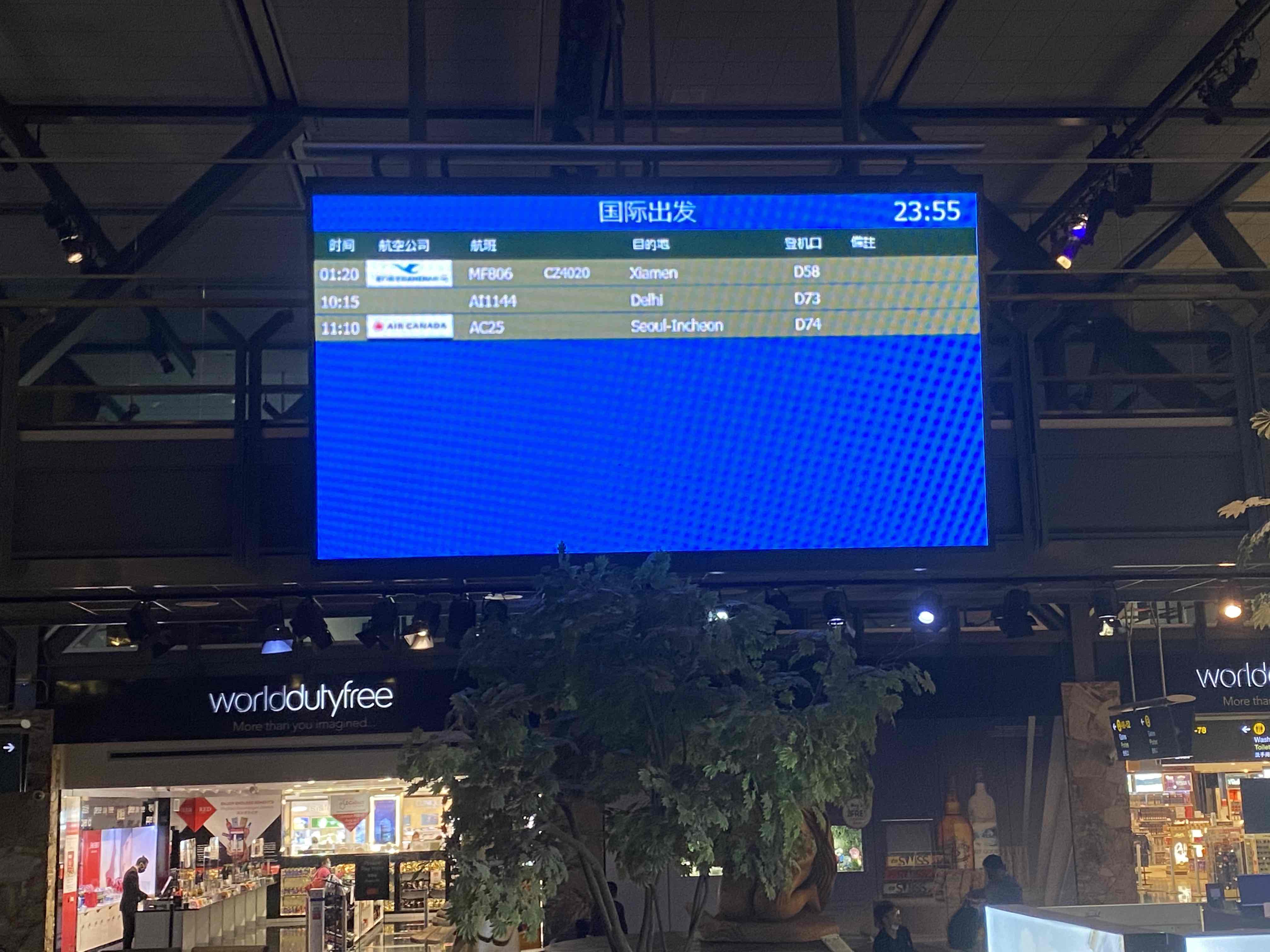
Before boarding a plane to China you have to show a negative COVID test issued within 72 hours of flying. Because Canada can’t handle the number of COVID tests it actually took me 3 days to get the results and I almost missed my flight because of that.
Vancouver airport
Before even going to the airport I had to download 2 apps on my phone, both mini-programs inside WeChat. One for customs and one that would be used as my electronic medical records for all my COVID and antibody tests in Xiamen. Not sure how people do that who can’t read any Chinese, even I had trouble figuring it out and filling out all the forms inside the apps.
Arriving at the airport I had to fill out a paper form about my health in Chinese (no English version was available), show my test results and then my temperature was taken before checking in. It was all pretty efficient and within 10 minutes I was at security already, where another temperature check was performed. The airport was virtually deserted, on the screens I saw that there were only 3 international flights in the next 12 hours.
I decided to have a drink in the lounge, but it turned out that they did not serve alcohol because of COVID (not sure what the reasoning behind that was actually). So I just had a bottle of water and left the lounge to take a one hour walk through the terminal before boarding. I thought boarding might be a hassle but because of the apps it was pretty efficient as well. On board I took my seat and hoped to get a drink before departure, but it turned out that there would be no food and beverage service on the almost 13-hour flight. Even in business class the only thing we got was a plastic bag with 2 pieces of bread, some cookies, an apple and 2 bottles of water!
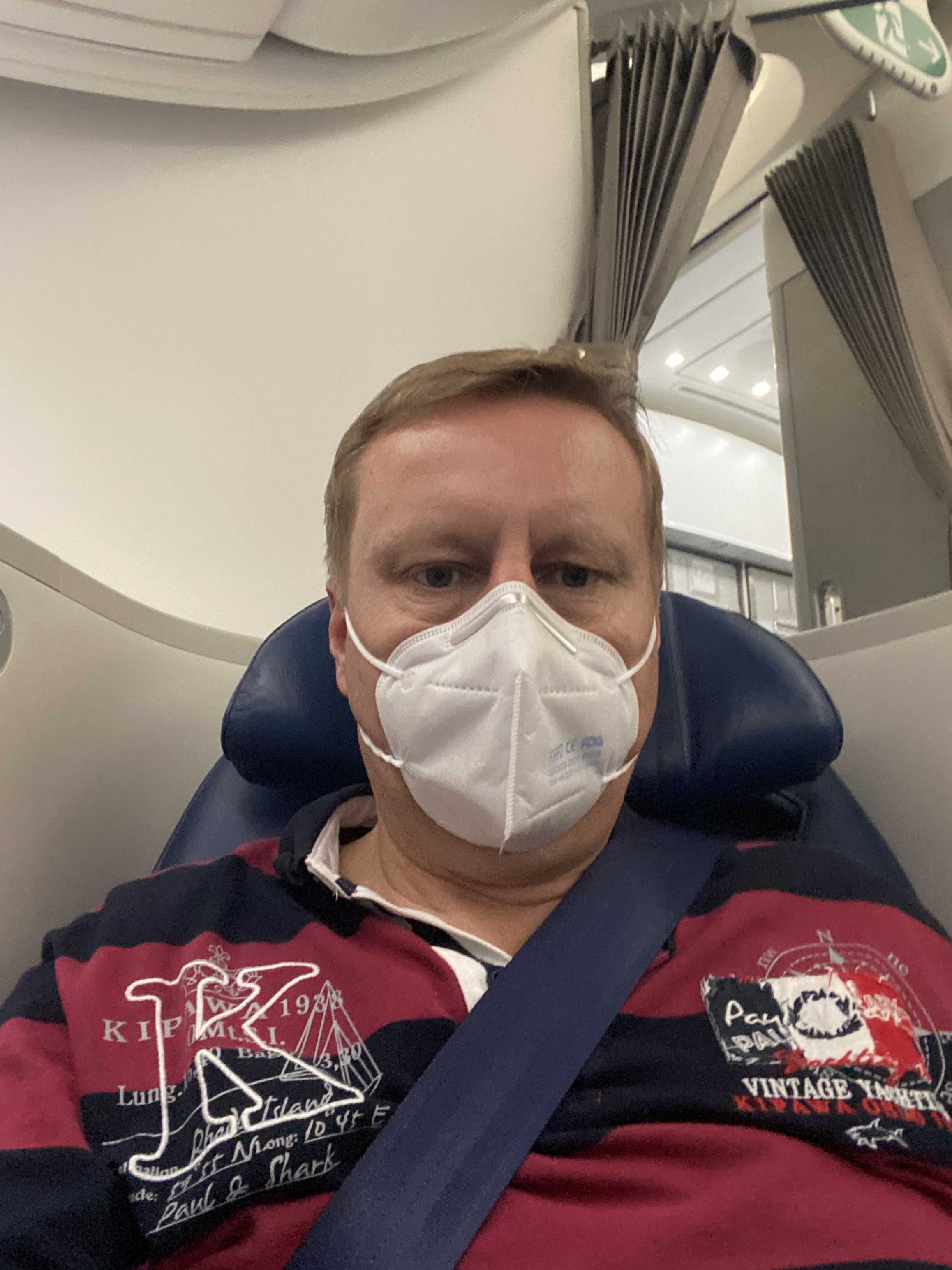
The flight
I put on my N95 mask before entering the airport and on the plane everybody had to wear masks as well. Most people had N95 masks as well and many were wearing plastic face covers and gloves as well. I felt pretty safe on the plane, simply because everybody had been tested in the days before the flight. When I boarded the plane in Vancouver I realized it was probably one of the safest places in Canada, the chance of catching it on the plane would be virtually zero. Looking around I also realized that I was probably the only non-ethnic Chinese on the plane, even though the plane was completely full. I guess that explained the Chinese-only forms.
The flight attendants were extremely well protected and there were even special regulations for going to the toilet. A flight attendant would open the door for you and you would have to wear plastic gloves inside the bathroom. After leaving the bathroom you had to throw the plastic gloves away and clean your hands and arms with alcoholic wipes that the flight attendant would give to you. No touching of anything with your hands was allowed.

Arrival in Xiamen
I was tired and slept about 7 hours (with my face mask on) during the flight. We landed around 5 AM in Xiamen and then the long arrival procedures started. I was prepared for that and knew it could take hours to just get off the airport, but it went quicker than I thought. After the quarantine police came in and checked everybody’s temperature I could leave the plane after about 45 minutes (luckily I was in the front of the plane) and we were taken in buses to the quarantine arrivals hall. There we had to show a form that we had to fill out on the plane (again only in Chinese) and QR codes generated by the apps. My temperature was taken again and then it was time for 2 different COVID tests: one with a long needle that seems to go from your nose into your brain (in reality it goes from your nose into your throat I read later, but it did not feel like that) and another one where they take a sample from inside your throat. Both were not fun, especially not after a long flight, but you have no choice of course.
Immigration took a bit longer, simply because the border agents did not speak a word of English and did not seem to understand any of my Chinese (that happens more often, the assumption seems to be that I must be speaking English them so they don’t even try to understand what I am saying). Complicating matters even further was that they did not seem to understand why I came to China. In that kind of situation being patient and smiling a lot always helps and indeed after about 5 minutes they stamped my passport and let me through. We were now about 2 hours after landing.

I picked up my suitcase, which was a challenge because I had broken my hand 8 days earlier (I had a nasty fall on the Grouse Grind), so my arm is in a cast and the rest of my body was still very bruised. Luckily there were porters who helped me and I even managed to send my suitcase directly to my hotel. Of course at that point I did not know which hotel I would be sent to, because there was another step in the process: the distribution center.
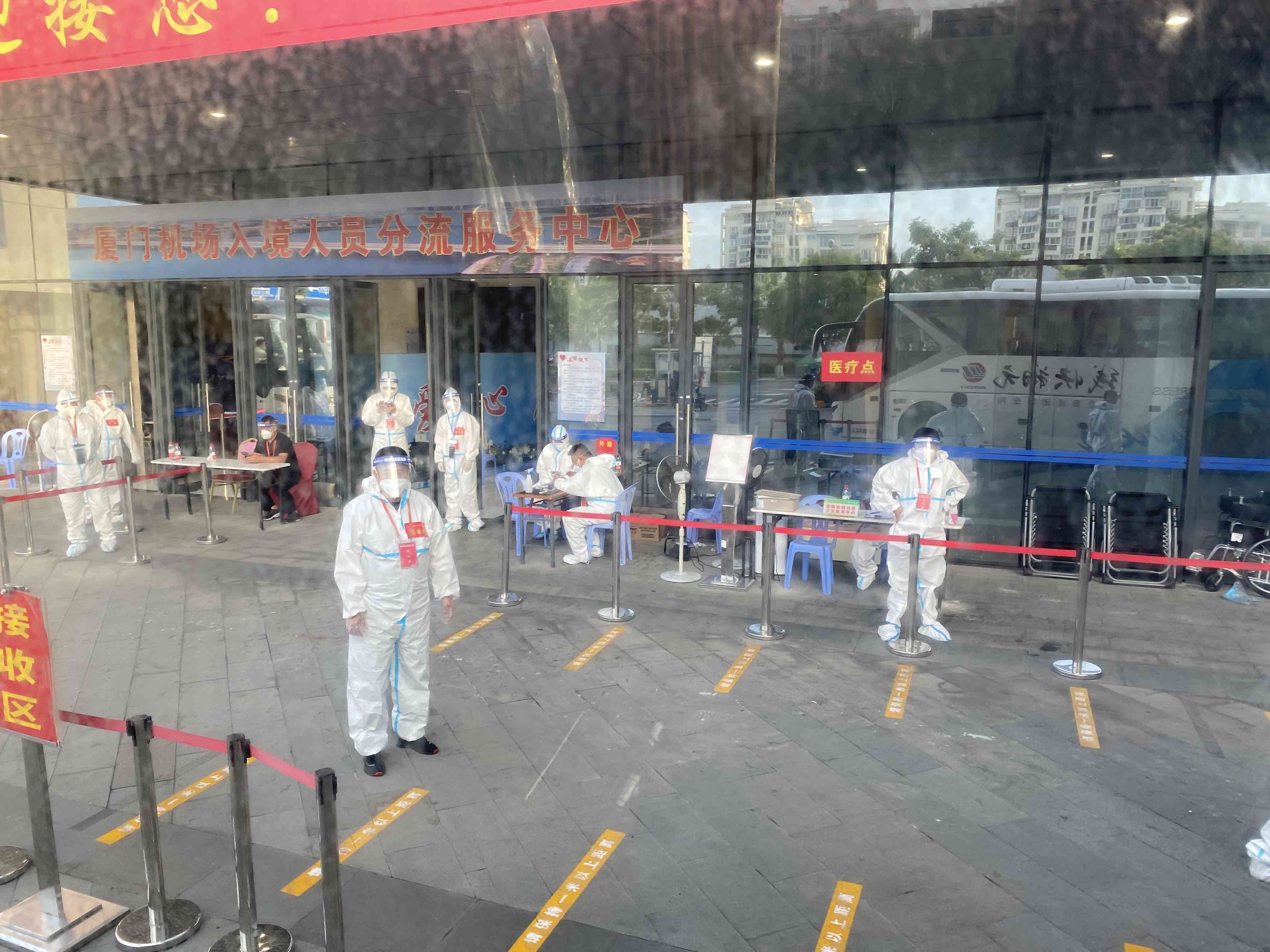
The hotel
Each time 15 people were through the testing and immigration process they were put on a bus and driven to a conference center where authorities would decide which hotel you would have to stay in for your quarantine. That took another hour and then I was finally taken by another bus to my destination. The hotel looked decent, but it was not as nice as the Xiamen hotel where Grace and the kids had quarantined 2 months ago. The quarantine hotels are not open to the public and security is pretty tight. Everybody in the hotel was wearing full PPE, so you could only see their eyes behind a plastic screen.
Upon check in I managed to upgrade to a suite, which was a huge relief for me. I got some Chinese forms, paid the room with WeChat pay and then went up to my room in the elevator. I walked through the corridor, took a final picture (the tables are for food that you order, the chairs are for your COVID and antibody tests) and then entered my room. The room looked pretty good, but after the door closed behind me it suddenly hit me that I would be locked up in here for 14 days. I did not know how to feel about that, but I was happy that the long journey was over and that everything had gone well.
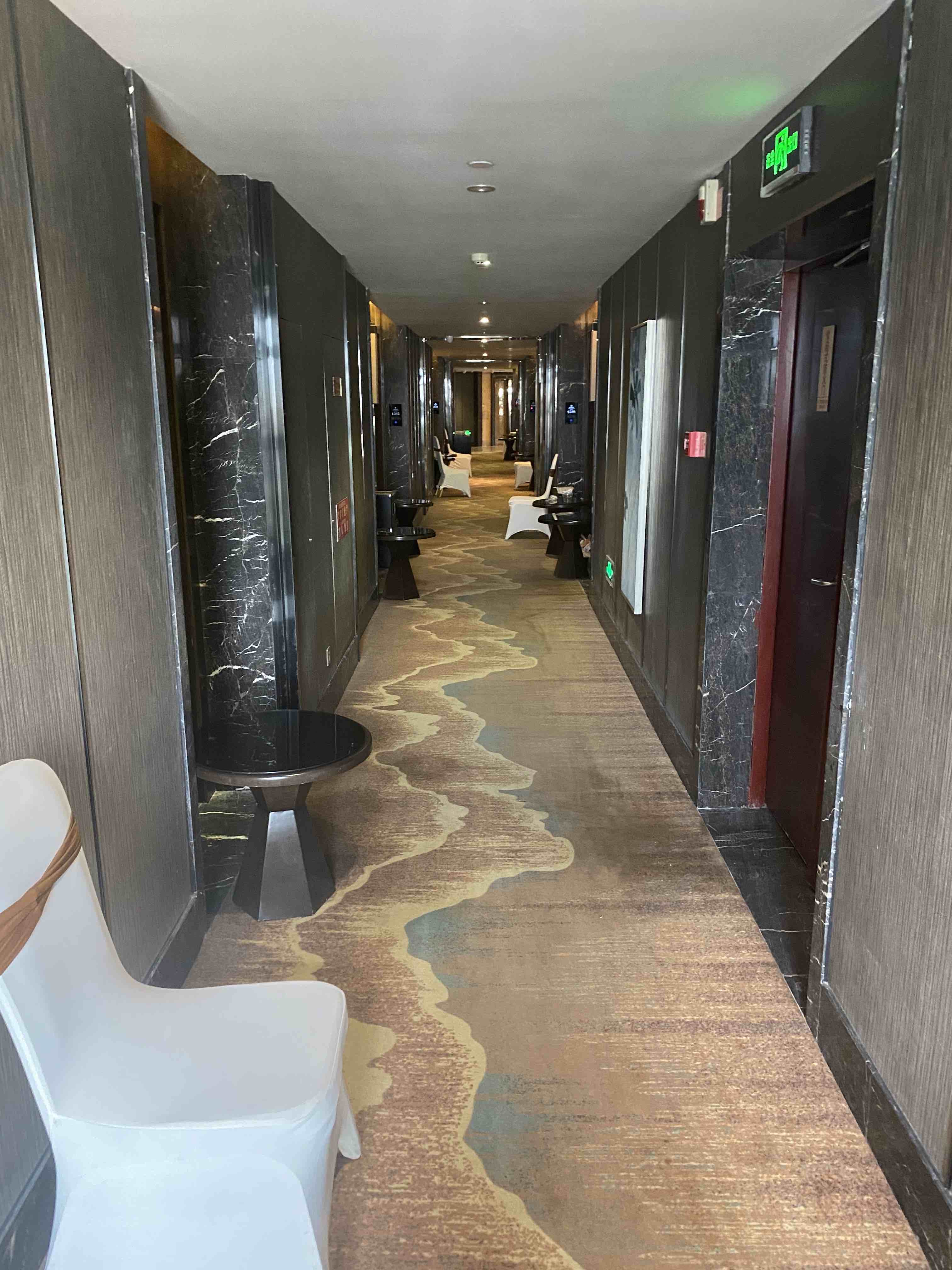
The first thing I did was to order some room service. The (Chinese) food came after about an hour and was not bad, so that was a good start. After a shower my suitcase arrived and I decided to measure a walking route in my hotel room. Because the suite had 2 doors I could walk a 25-step circle in the room, which was better than I had expected. Over the past 14 days I averaged about 20,000 steps per day and my record was over 30,000 steps (25 km) in my hotel room. It was the only way to stay in shape and I enjoyed it. I walked the circle 1000s of times and can now do it while reading a book without hitting anything.
As usual, I was very well prepared for the stay. I had downloaded tons of movies, documentaries and TV shows on my iPad. I had many audio books and podcasts on my phone, and my Kindle had many books that I wanted to read. I had planned to use the quarantine efficiently and looking back that was the right decision. Believe it or not, but I have not been bored once during this quarantine.
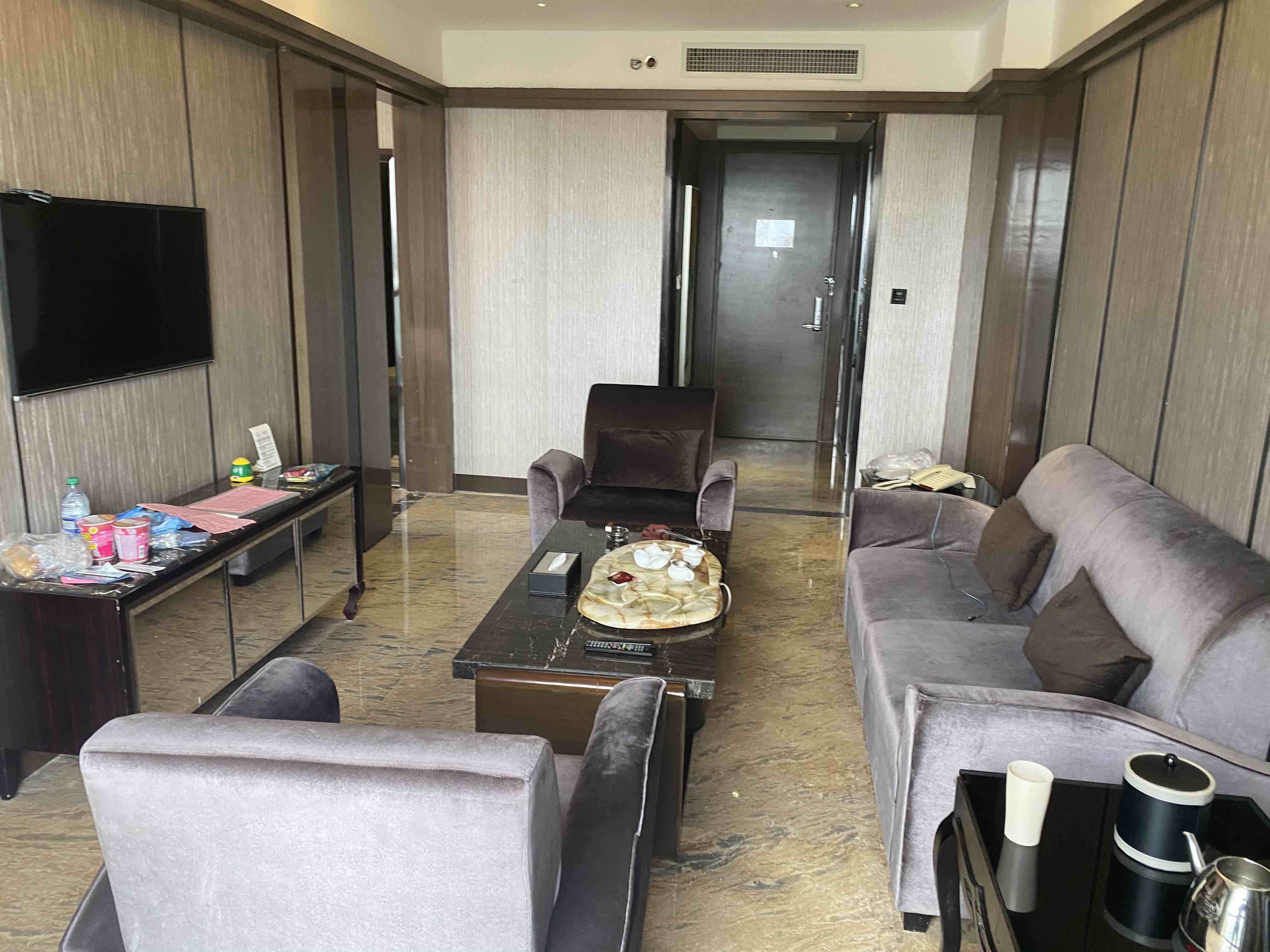
I made a schedule that I adhered to pretty strictly: I decided to get up between 3-4 AM every morning so I would be awake during the afternoon hours in Vancouver, meaning that I could do calls and Zoom meetings with North America. After 10 AM I normally would spend at least 2 hours doing university lectures, I finished one 34 lecture course about Chinese history and an 8 lecture course about composer Franz Liszt in the past 2 weeks. During that time I would normally get my first temperature check of the day as well. After lunch (served between 11:30-1 PM) I would take a nap, study Chinese for an hour and then I would read a book or listen to podcasts while walking around my room.
I ordered a lot of good wines and it was very tempting to start drinking at lunch already, but after one day I decided not to open a bottle before at least 5 PM. After another temperature check and an early dinner I normally spent the evening listening to podcasts and audiobooks and I watched an occasional movie. I was normally in bed between 8-9 PM, so I would get enough sleep.
Today is my last day and looking back I have to say that I enjoyed the quarantine. I got so much work done and I finally managed to read books and do courses that had been on my to do list for years. It’s nice that you don’t have to go grocery shopping or have to cook, it saves you so much time. I think I might actually miss the quarantine. However, I can also understand that it is depressing for many people. Not being able to leave is psychologically not always easy, especially when it’s nice weather outside and you see many people walking around. Having a strict schedule really helped me and I would probably do the same again if I need to travel to China another time before the rest of the world gets the pandemic under control.
I very much look forward to going outside for the first time in 2 weeks in a couple of hours. I can’t wait to feel the sun and the wind again. And I can’t wait to see other people, especially my kids who I have not seen for almost 2.5 months. I did 5 COVID tests and 2 antibody tests over the past 2 weeks and the QR code on the app on my phone reflects that, so I will be able to go to bars and restaurants again.
The 2 weeks of quarantine was worth the wait for me and I really look forward to being in a COVID-free world for a while as a reward, a world that has gone back to normal while the rest of the world still does not seem to understand how to stop the virus. To me it is clear that China is doing this right: it may seem draconian to lock people up in hotel rooms, to do constant COVID tests and to have contact tracing apps on your phone, but it works!
